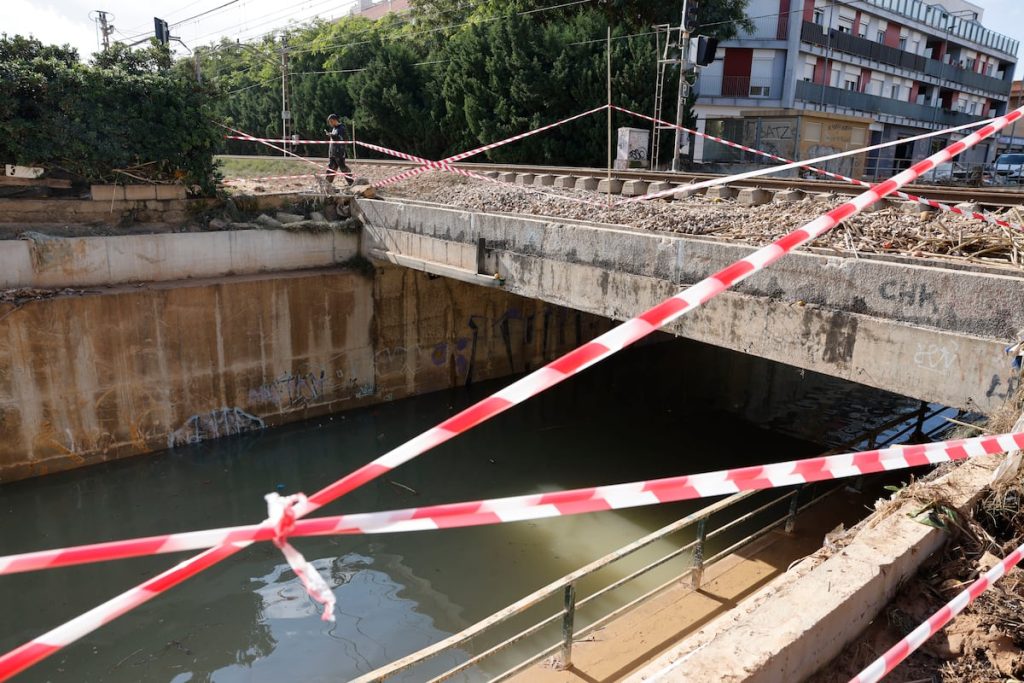A dump truck, also known as a tipper, typically has a carrying capacity of around two and a half tons, depending on the type of material being transported. In the flood-ravaged streets of Valencia’s towns, 2,500 tons of waste are collected every day. These residues consist of a dense alloy of mud and memories, including furniture, reeds from riverbanks, grandparents’ photos, love letters, house deeds, music collections, and children’s toys. The emotional cost and loss of personal and collective identity for those affected cannot be quantified simply by counting the number of dump trucks needed.
On the morning of the press conference at 77 Democracy Street, the Minister of Environment, Infrastructure, and Territory, Vicente Martínez Mus, oversaw the cleanup and repair efforts following the devastating flood. Noticeably absent were the mourning bands, delaying the start of the event. Despite the ongoing nightmare just six kilometers away, the rest of Valencia seemed untouched by the tragedy, shielded from the harsh reality faced by thousands of affected residents. The region’s political leaders remained silent and hidden for over a week before stepping forward to address the crisis, with Martínez Mus being one of the first to face the public.
During the press conference, Martínez Mus focused on providing updates on infrastructure works to restore normalcy quickly and avoid controversy. However, a question from the audience regarding corruption concerns disrupted the scripted narrative. The Minister seemed unconcerned about the potential for profiteering during the emergency, admitting that attention had been primarily on urgent needs rather than scrutinizing the process. This response raised eyebrows, given the history of corruption scandals involving politicians from various parties at both regional and national levels.
Following Martínez Mus’s candid admission, the Director-General of Roads, María José Martínez Ruzafa, reassured the public that measures were being taken to prevent abuses and comply with the law. However, the recent history of corruption scandals in emergency situations like the COVID-19 pandemic raises skepticism about the effectiveness of these measures. With the 22nd anniversary of the Prestige oil spill approaching, parallels can be drawn between the response in Valencia and the mishandling of the environmental disaster in Galicia, including the role of volunteers and the political maneuvers to deflect blame and accountability.
As Valencia continues to grapple with the aftermath of the flood, the growing concern over potential corruption and exploitation in disaster response efforts underscores the need for vigilance and accountability. The echoes of past tragedies like the Prestige serve as a sobering reminder of the stakes involved in managing environmental crises and the importance of transparent and ethical governance practices. Moving forward, the community must remain vigilant against opportunistic profiteering at the expense of those still reeling from the devastation.


